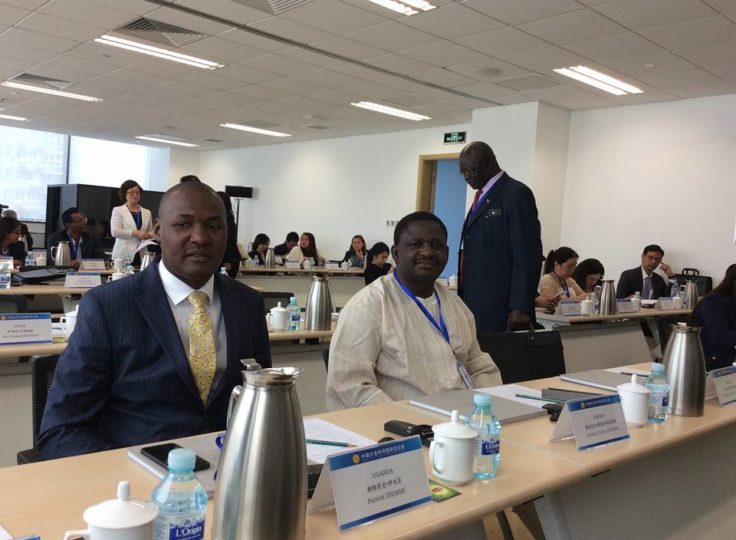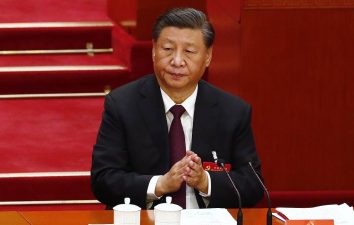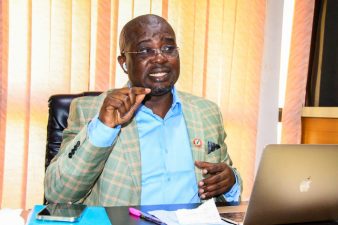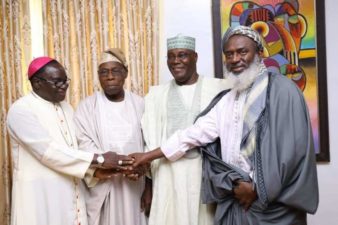One area in which the Nigerian economy visibly suffered in recent years was the drawing down of its foreign reserves, at a time of plenty.
When oil prices hit over 100 dollars per barrel, and stayed there for many years, the immediate past administration inherited the reserves from President Umaru Yar’Adua at over $60 billion, but when it exited in 2015, it left a paltry $29.6 billion. Not only did the administration not have the willingness to save, it also plundered what had been saved before it came.
Now, hear this: China, as at April this year, had foreign reserves of $3.1249 trillion. Sometime in 2017, the same reserves was almost hitting $4 trillion. Holy Moses!
Nigeria has suffered. Very badly. A well endowed country has never had the luxury of hitting even $80 billion in foreign reserves. It is the Muhammadu Buhari administration that has taken the figure back to $47.5 billion as at May, this year. And still counting. Just as the country has never had more than 5,000 MW of electricity in its history, despite billions of dollars spent on the sector. Until the current Buhari administration amassed 7,000 MW, and still counting.
What’s the big deal about foreign reserves, when people are hungry at home, some naysayers may ask. The health of your foreign reserves says a lot, and means a lot to your economy. It helps to stabilize your local currency against stronger international currencies. It helps you to fund your imports, particularly, when you are a consumer nation, like Nigeria used to be (things are gradually changing now, with the diversification of the economy). Healthy foreign reserves also stimulate the confidence of investors in your economy. They get attracted to bring their funds into your economy.
There was a time China was zero. Now it is hero. From zero to hero, all within 40 years of reforms, opening up to the world, and focussed governance. In 1978, the GDP of China was $147.3 billion, and it ranked 10th in the world. Today, the GDP is $11.2 trillion, making it second in the world, only behind the United States of America, which has GDP of $18.57 trillion.
When oil prices hit the roof between 2011-2014, not only was Nigeria not saving, it was still taking international loans, which were simply pocketed by some people in government. By the time the administration left, at least 30 states could no longer pay salaries. The Federal Government itself was borrowing monthly, to pay salaries, despite over $420 billion reportedly made from oil. Thy glory oh Nigeria is slain upon the high places.
How does China chalk up such healthy reserves?
The country is blessed with rare earth metals, which it exploits to the good of its people. It has the world’s largest total banking sector assets of $39.9 trillion. It is the largest manufacturing economy/ exporter of goods, second largest importer of goods, largest trading nation in the world, world’s largest producer and consumer of agriculture products, with 300 million farm workers cultivating rice, wheat, corn, tobacco, soybeans, potatoes, sorghum, peanuts, tea, millet, barley, oilseed, pork, fish, and many others. Indeed, all arable land in China is used for food crops.
President Buhari met about 5 million rice farmers in 2015. Today, they are about 12 million, and rice import has been cut by about 90%. Yet, some people keep wailing, saying they can’t see what the government is doing. China did not become a world power in agriculture with those kind of people, who live perpetually in self-denial.
Also contributing to China’s healthy reserves is mining. Its treasure troves include coal, iron ore, natural gas, petroleum, tin, nickel, bauxite, gypsum, barite etc. Just before Dr Kayode Fayemi, erstwhile Minister for Mines and Steel Development left the cabinet last week, to pursue his gubernatorial vision in Ekiti State, the National Bureau of Statistics had disclosed the salutary impact being made to our GDP by mining, yet some people claim not to see. Yes, the willfully blind will never see, even if it is thrust in front of their eyes.
China exploits all its God given resources to bless its people. Within 40 years, over 700 million people have been brought out of grinding poverty, and it has a target to eliminate population poverty by 2020. It usually formulates a 5-year plan that details economic priorities and essential policies. It is in the 13th cycle of such plan, which ends in 2020. That is how to make a difference. It hopes to be a fully developed nation by 2049, which is the centenary of the People’s Republic of China.
The country generates revenue from other areas like telecoms, tourism, services, luxury goods, and many others. No wonder the shanties of the 1950s to 1970s have given way to high rise buildings. The rafts on the water and seas have turned to flying boats and ships, the thick darkness has given way to round the clock electricity, fast trains now move at the speed of light, and locally manufactured planes possess the sky.
Nigeria is a country of missed opportunities. But we need not continue to rue and bemoan our losses. In the past two years, N2.7 trillion was spent on capital projects. Rail projects will soon carpet the entire landscape. Agriculture has leapfrogged, mining has resurged, and manufacturing is getting a shot in the arm. Foreign reserves have doubled in one year, when oil prices are still modest, compared to what we used to earn. China is there today, Nigeria will also get there. But a lot depends on us.
*Adesina is Special Adviser to President Muhammadu Buhari on Media and Publicity. He wrote from Beijing capital city of China, where he is currently attending the 2018 Seminar on National Governance for Presidential Advisers of Developing Countries, holding in Beijing, China. The seminar is under the auspices of Graduate School, University of Chinese Academy of Social Sciences. It holds from June 1-14.




